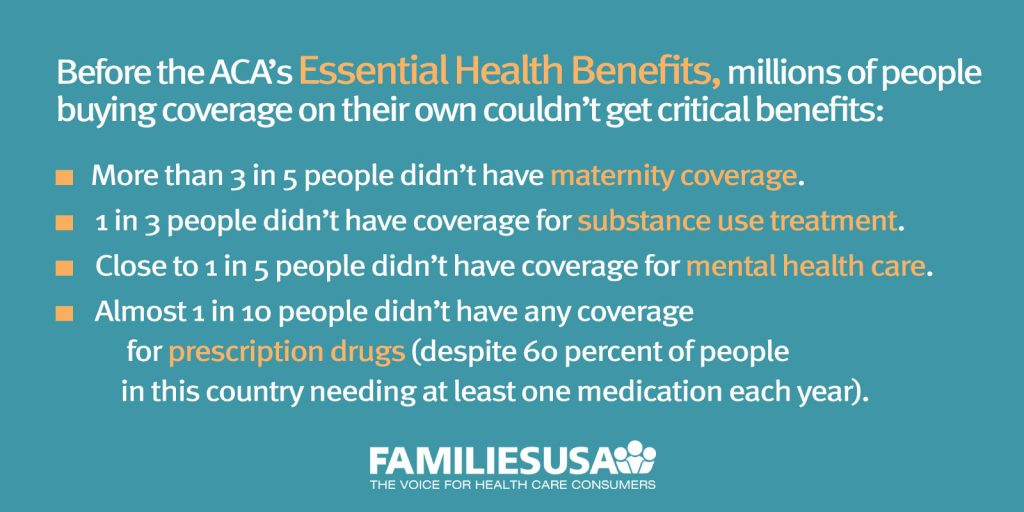Little Known Questions About Medicare Advantage Agent.
Little Known Questions About Medicare Advantage Agent.
Blog Article
Medicare Advantage Agent Things To Know Before You Buy
Table of ContentsThe 4-Minute Rule for Medicare Advantage AgentThe Ultimate Guide To Medicare Advantage AgentMedicare Advantage Agent for Beginners

adheres to from puzzling the reasonably young age account of the without insurance with the better health, usually, of younger persons. This covers the link between wellness standing and medical insurance. For those without accessibility to office medical insurance, bad health and wellness is a possible barrier to purchasing nongroup coverage because such protection might be highly valued, leave out pre-existing conditions, or be just not available. The variety of uninsured Americans is not specifically large and has not changed in recent times. Seven out of ten participants in a nationally representative survey thought that less Americans lacked wellness insurance than actually do(Fronstin, 1998). Roughly half(47 percent )believed that the number of individuals without medical insurance lowered or continued to be consistent over the latter half of the last years(Blendon et al., 1999). This drop of almost 2 million in the number of people 'without insurance policy (a decrease
of about 4 percent)is certainly a positive change. With a softer economic climate in 2000 the most recent reported gains in insurance policy protection may not continue(Fronstin, 2001 ). The decrease in the variety of without insurance will not continue if the economic climate remains slow-moving and health and wellness care prices proceed to outpace rising cost of living. This is due to the fact that the data were gathered for a period of solid economic performance. Of the approximated 42 million people who were without insurance, all see it here yet concerning 420,000(concerning 1 percent)were under 65 years of age, the age at which most Americans become qualified for Medicare; 32 million were grownups between ages 18 and 65, about 19 percent of all adults in this age; and 10 million were children under 18 years old, regarding 13.9 percent of all children (Mills, 2000). These quotes of the variety of persons without insurance are generated from the yearly March Supplement to the Existing Populace Survey (CPS), conducted by the Census Bureau. Unless otherwise kept in mind, national estimates of people without health and wellness insurance coverage and proportions of the populace with various type of insurance coverage are based on the CPS, one of the most commonly utilized source of quotes of insurance protection and uninsurance prices. These studies and the estimates they generate are explained briefly in Table B. 1 in Appendix B - Medicare Advantage Agent. These studies differ in size and tasting methods, the questions that are inquired about insurance coverage
Medicare Advantage Agent Fundamentals Explained
protection, and the time period over which insurance policy protection or uninsurance is measured(Lewis et al., 1998, Fronstin, 2000a ). Still, the CPS is particularly helpful since it generates annual estimates relatively promptly, reporting the previous year's click over here now insurance policy coverage approximates each September, and since it is the basis for a consistent collection of quotes for more than 20 years, enabling for evaluation of fads in insurance coverage over time.

The Only Guide to Medicare Advantage Agent
The partnership between health insurance coverage and accessibility to care is well established, as see this website recorded later on in this chapter. The relationship between health insurance coverage and health and wellness results is neither direct neither easy, a substantial scientific and wellness services research study literature links health insurance protection
to improved enhanced to care, better far betterTop quality and improved personal and population health health and wellnessStanding The second report, on personal wellness results for without insurance adults, is stood for by the innermost circle of the figure, while the third report, on family wellness, incorporates the topics of the second report however emphasizes a different unit of evaluation, particularly, the family.
The independent and direct impact of health
insurance coverage on access accessibility health services solutions well establishedDeveloped For still others, health insurance coverage alone does not guarantee receipt of treatment because of other nonfinancial barriers, such as a lack of health treatment service providers in their community, limited accessibility to transport, illiteracy, or linguistic and social differences. An adjustment in insurance costs or terms, as well as changes in revenue, health and wellness, marital standing, terms of work, or public policies, can trigger a loss or gain of health insurance coverage.
Report this page